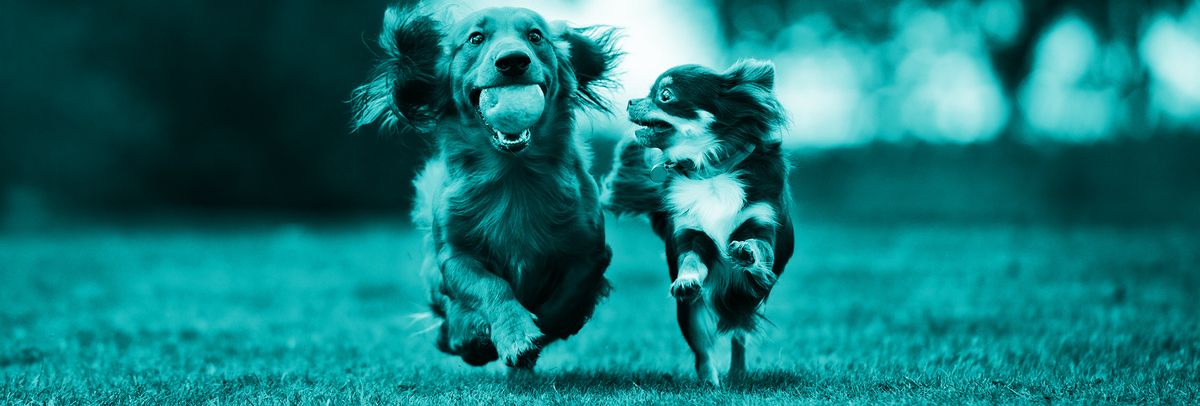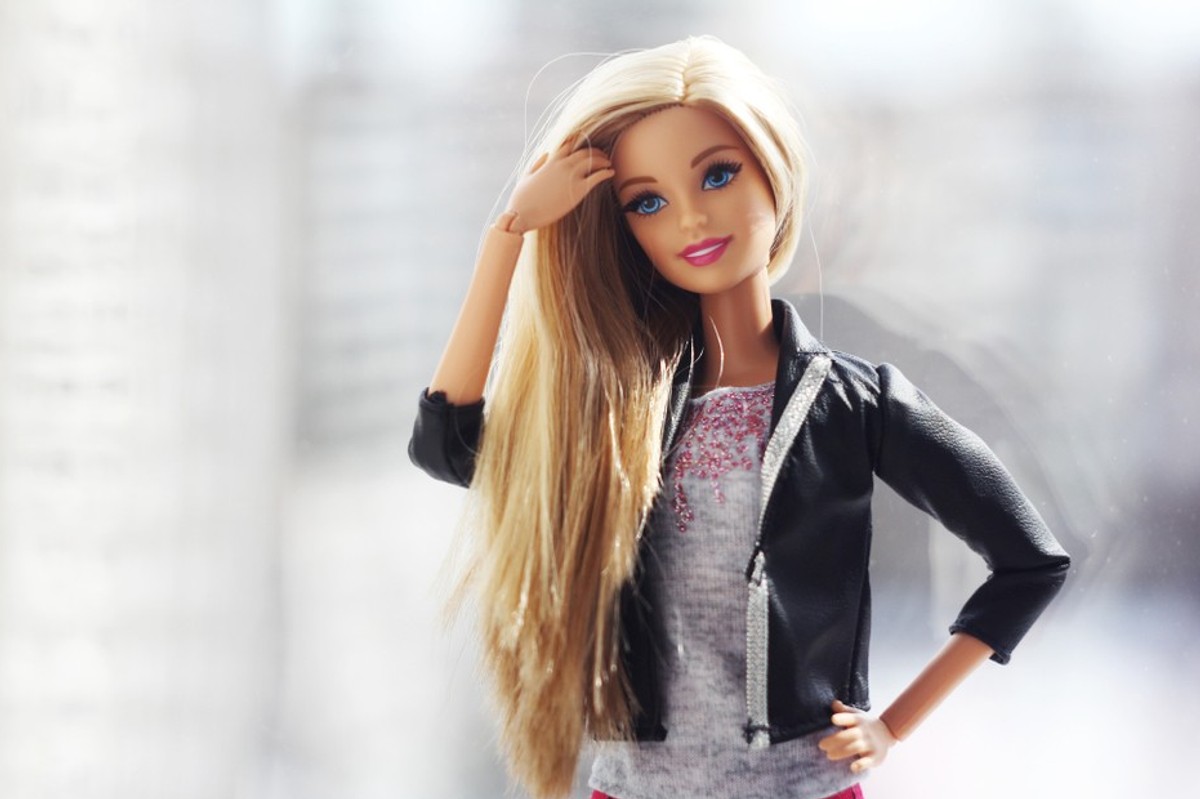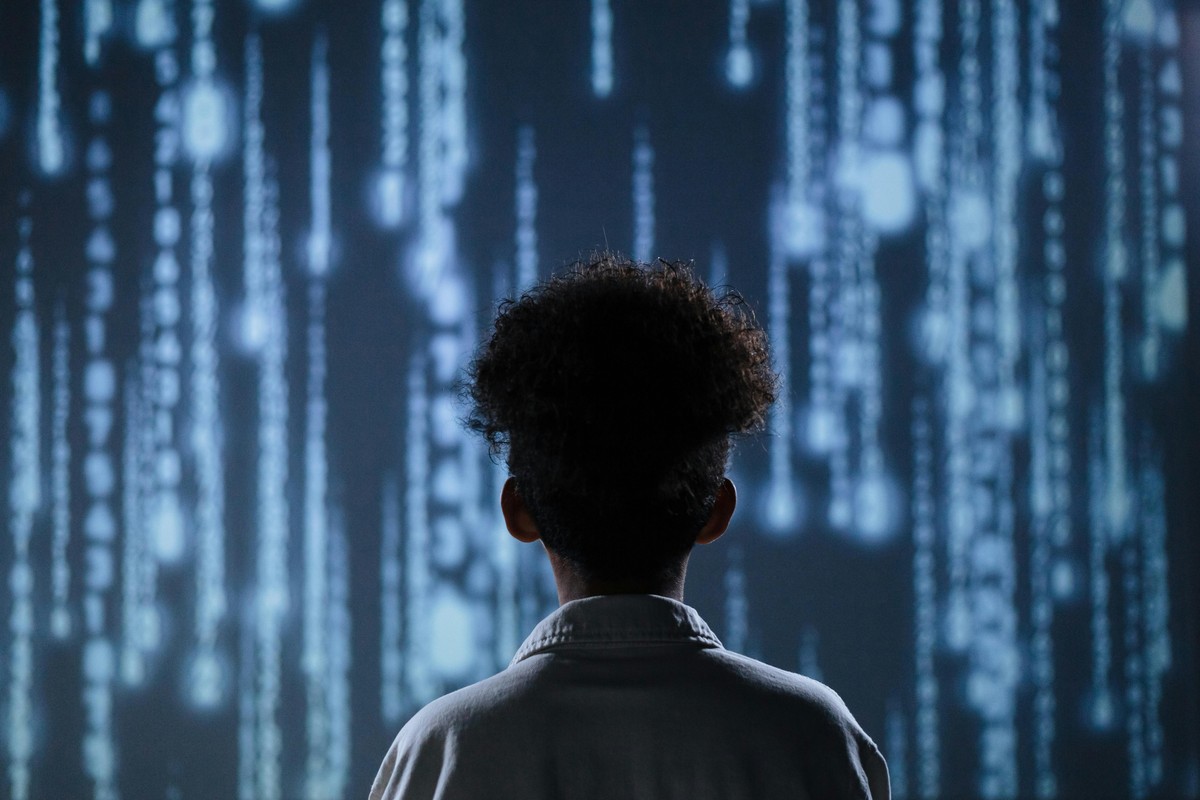Jolene Jeffrey
Jolene has completed a Bachelor of Media (Communications and Journalism) degree at UNSW. She is an aspiring content creator and a true blue Aries. Furry friends are not friends to her but she does have an obsession with jelly cat bunnies.







On International Dog Day, spare a thought for the cynophobes of the world.
"Stop! Please!" I cry in desperation as I race for my life. But they won't listen to me, these three creatures continue to chase me down the hill as I approached the forest. I run as fast as my legs will carry me; the hill is steep but my momentum and the adrenaline prevent me from stumbling, falling. I know they can't understand my language, my desperate pleas but I am in extreme distress. My screams are piercing, my heart is thumping.
My walkie-talkie falls from my pocket, distracting the bigger beast for a moment as it stops to chew it. One down, two more to go. The little ones keep coming, finally cornering me, pressed against a tree. I am ready to surrender, no, I am about to pass out.
Then, a woman comes to my rescue.
"When a dog chases you, you don't run," she says angrily. She has been running too, in pursuit of her smaller canines, a shitzu and a toy poodle, perhaps. She is obviously annoyed, but I couldn't care less. I am too busy catching my breath after living out my worst nightmare.
****
IT WAS at Sydney Park and I was doing voluntary work, handing out water during a charity fun run (before COVID cancelled out that sort of fun). I had no idea it was a pet-friendly park where dogs could be unleashed. A lot of passers-by saw my ordeal, Afterwards, I was embarrassed and humiliated but, mostly, just glad it was over.
It's hard for the dog-loving majority to understand. Anthony Berrick, a psychologist and founder of Australia's only cynophobia clinic, in inner Sydney, explained it's not that people suffering cynophobia hate dogs, "they're scared of them ... it's a completely automatic involuntary response that they have, this fear response."
He said what people find difficult to understand is that with phobias in general, fear comes from a different part of the brain. "It doesn't matter that they understand the dog is friendly, the dog is cute, part of the brain that creates that fear doesn't care what you think."
My friend Vicky tells the story of a golden retriever which had to be leashed because she felt threatened by it. A friend who witnessed this responded by laying a guilt trip on her: "See, the dog loses its freedom because of you." Vicky said while she's okay with seeing dogs from afar, she fears unexpected close contact. "It really hurts. I am fearful and it's a struggle for me too, yet I was treated like a sinner."
During a New Year's Eve gathering, what was supposed to be a joyous occasion turned into a nightmare for Sam and his cousins, all teenagers, who were afraid of dogs. Their relatives knew that, yet someone decided to let the old-aged silky terrier off the leash out of pity. The teens left the house hurriedly as Sam's dad shouted at the relatives for ruining the celebrations. Just like that, the party was over.
Dogs are one of my only two great fears and because of that, people see me as a timid girl who's afraid of everything. But the truth is, I could probably catch that cockroach for you while you're screaming and jumping for the sofa. This fear is more common than you think. An estimated one in 20 people has cynophobia – a fear of dogs. I happen to be one of them. And it sucks.
It is hard to live in a city like Sydney where so many people own and love their dogs. It's a daily struggle, from the snarky remarks from pet owners when I jump at the sight of their dog, to taking the long way home to avoid a dog on the road. I've had to miss housewarmings because I know the hosts have dogs. Dog owners are pushing for their pets to be allowed inside pubs after a crackdown of dog-friendly pubs earlier in the year. Initiatives like this will only make my life harder.
Somehow, being scared of dogs makes us a laughing stock, it is deemed as a less acceptable fear. Being afraid of needles is okay because they are sharp, being afraid of heights is okay because we might fall and die. Being afraid of spiders is okay too, because, well, they're spiders. And crawly. But dog owners get offended when we don't want to go near their pooch and even our friends get impatient with us.
Fear is real pain. I cannot even begin to describe the sheer annoyance I feel at the comments: Why are you even scared of dogs? They're so cute, how can you not love them? They're so small, they won't bite you or, worst of all, just get over it. I speak for many with this fear when I say we feel misunderstood and condemned because it's not like we can help it.
BUT STILL.. they're so adorable and harmless!
They are cute, and yes that puppy sleeping video you found on the internet is adorable as heck and I might even go 'aww'. But my brain doesn't care, at least not the part of it where fear resides.
Psychologist Berrick said many of his clients decide to seek help for their children suffering this fear because they are concerned their child may see an unleashed dog on the footpath, and become so fearful they run out into the road. "So, it's like, you know, the dog seems, in that moment, so terrifying that they feel safer in the road."
According to Berrick, it is very rare that people are afraid of being bitten by a dog, it is the feeling of being out of control. As it is for people with a fear of spiders. "They're not afraid of getting bitten, they're afraid of having contact, and how they would feel if they had that contact, like they would feel out of control, like, I feel like I'm going crazy."
As to why some people have this fear, the thinking is there has been some traumatic event but in most cases, they won't know exactly what it was. Psychologist Corrie Ackland, of the Sydney Phobia Clinic, said, "anecdotally, 50 per cent of my clients are unable to identify a specific event, or certainly not an event that objectively is that bad."
"So, whether we identify it or not, the brain has certainly learned that these things aren't good, and from that has developed to a threat response, which can gradually worsen over time to become a phobia."
When I try to track the source of my phobia, I think back to childhood, where my family had a few dogs and I did get hospitalised a lot because of them. But I cannot pinpoint the moment that made me anxious about them. For me, it's not like looking at photos of dogs gives me an anxiety attack, I just don't want any contact with them. Not even eye contact. And I know that's hard to understand.
Society, in general, does not have a good understanding of phobias. "A lot of people have thing that they don't like, and they often misunderstand phobias as those things," Ackland said. "When they see someone reacting more excessively, they think well, that's ridiculous, because I don't like blah, and I don't do blah, they misunderstand the spectrum of the phobia."
A phobic fear of dogs can lead to a full-blown panic attack, where the sufferer has difficulty breathing, nausea, feels lightheaded and may even experience perception difficulties.
Today, August 26 is International Dog Day, with owners encouraged to pamper their pooches with pet playdates, long off-leash walks and dog friendly treats; while we cynophobes quietly pray for a world devoid of their panting exuberance.
With cynophobia, the good news is there is a treatment. The bad news, it's through exposure therapy. Both Ackland and Berrick agree the essence of treating a phobia is through building a positive experience to counter the negative one that created the phobia in the first place. The aim is to tip the balance to weaken the negative experience.
Would I give exposure therapy a try? Maybe, when I can afford it. Until then, the idea of a chihuahua running full pelt towards me remains too daunting to bear.